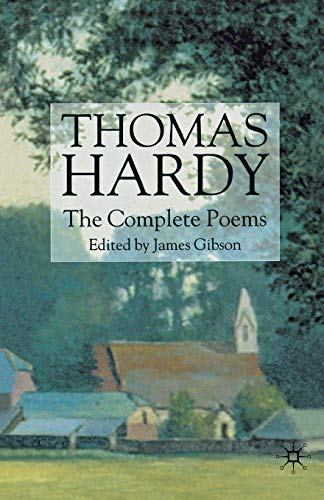
诗:Afterwards, by Thomas Hardy. 哈代《身后》
Afterwards
By Thomas Hardy (1840-1928)
When the Present has latched its postern behind my tremulous stay,
And the May month flaps its glad green leaves like wings,
Delicate-filmed as new-spun silk, will the neighbours say,
“He was a man who used to notice such things”?If it be in the dusk when, like an eyelid’s soundless blink,
The dewfall-hawk comes crossing the shades to alight
Upon the wind-warped upland thorn, a gazer may think,
“To him this must have been a familiar sight.”If I pass during some nocturnal blackness, mothy and warm,
When the hedgehog travels furtively over the lawn,
One may say, “He strove that such innocent creatures should come to no harm,
But he could do little for them; and now he is gone.”If, when hearing that I have been stilled at last, they stand at the door,
Watching the full-starred heavens that winter sees,
Will this thought rise on those who will meet my face no more,
“He was one who had an eye for such mysteries”?And will any say when my bell of quittance is heard in the gloom,
And a crossing breeze cuts a pause in its outrollings,
Till they rise again, as they were a new bell’s boom,
“He hears it not now, but used to notice such things”?
身 后
当我不安度过一生后,“今世”把门一锁,
五月又像新丝织成的纤巧的翅膀,
摆动起欢快的绿叶,邻居们会不会说:
“他这个人素来留意这样的景象”?若是在黄昏,如眼睑无声地一眨那样,
暮天的苍鹰掠过高地的阴影
落在叫风吹斜的荆棘上,注视者会想:
“这准保是他熟悉的情景。”我若死于一个飞蛾连翩、温暖漆黑的夜里,
当刺猬偷偷摸摸地穿过草地时,
有人会说:“他为保护这些小生命出过力,
但没做成什么;如今他已去世。”人们传开我终于安息的消息后,
若倚门仰望冬夜布满星斗的天际,
愿从此见不到我的人心中浮现这样的念头:
“他这个人可洞悉那里的奥秘。”当丧钟开始为我哀鸣,一阵轻风吹过,
哀音随之一顿,旋即继续轰鸣,
仿佛新的钟声又起,可有人会说:
“他听不见了,过去对这却总留心?”(钱兆明 译)
